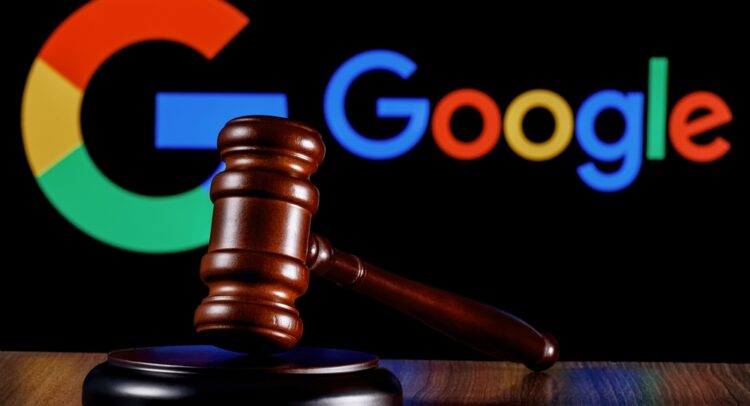Alphabet’s (GOOGL) Google Search engine lost a landmark, years-long antitrust battle with the Justice Department that alleged the tech giant misused its dominance in search and text advertising. U.S. District Judge Amit Mehta declared the verdict against Google and called it a “monopolist,” saying that it had violated Section 2 of the Sherman Act.
Don't Miss our Black Friday Offers:
- Unlock your investing potential with TipRanks Premium - Now At 40% OFF!
- Make smarter investments with weekly expert stock picks from the Smart Investor Newsletter
A separate proceeding will determine penalties (monetary or otherwise), changes to Google’s monopolistic practices, and the possibility of breaking up the company.
The defeat marks a big loss for Google as this is the first-of-its-kind anti-competitive lawsuit against one of the big tech firms. Alphabet’s defeat also stands to change how billions of people worldwide will get their information online, quickly and with relevance. Kent Walker, Google’s president of global affairs, stated that the company intends to appeal the decision.
From the beginning of the trial, Google has upheld that people prefer to use Google Search because it offers better quality and Alphabet has spent billions to keep its services updated.
Here’s More About How Google Lost
The judge based his ruling on witness testimony and evidence that appeared in a ten-week trial last year. Witnesses included executives from Google, Microsoft (MSFT), Apple (AAPL), and Samsung (SSNLF). The lawsuit alleged that Google maintained high barriers to entry in the search market, thus establishing a strong foothold. As per recent stats, Google held an 89.2% share of the general search market and 94.9% on mobile devices, reflecting a staggeringly large, unchallenged position.
The ruling stated that Google used exclusive search arrangements and paid billions to act as the default search provider on Samsung’s Android and Apple’s iPhone and iPad devices. The judge also ruled that Google charged higher prices for advertising on Google Search, those that appeared along side the search results, thus abusing its dominance. These deals ensured that Google received a constant flow of user data that it further leveraged to reinforce its monopoly, calling it a feedback loop. The practice also hampered competitors’ efforts to gain dominance in the search market at scale.
Another important concern raised at the trials was that Google could use the massive amounts of data from its Search browser to enhance its AI (artificial intelligence) offerings. Big techs are engaged in an intense war to strengthen their AI models, which is ultimately dependent on the data fed into them. Interestingly, OpenAI recently announced the trial launch of its SearchGPT model as a direct threat to Google Search.
The verdict against Google sets a precedent for the other ongoing antitrust cases against big technology firms, including Meta Platforms (META), Amazon (AMZN), and Apple. Meanwhile, Google is set to fight another antitrust case in September. This lawsuit filed by the Biden Administration accuses the company of misusing its dominance in advertising technology.
Hedge Funds Continue to Amass GOOGL Stock
Despite legal overhang, hedge funds have a bullish stance on GOOGL stock. TipRanks’ Hedge Funds Trading tool shows that GOOGL has a Very Positive Hedge Funds Confidence Signal, as hedge funds increased their holdings by 6.2 million GOOGL shares in the last quarter.

Is It a Good Time to Buy GOOGL?
GOOGL stock commands a Strong Buy consensus rating on TipRanks. This is based on 30 Buys versus seven Hold ratings. The average Alphabet Class A price target of $204.62 implies 28.5% upside potential from current levels. The stock has already gained over 14% year-to-date.
Analysts’ ratings and price targets might change in reaction to the unfavorable outcome of the antitrust lawsuit.




















